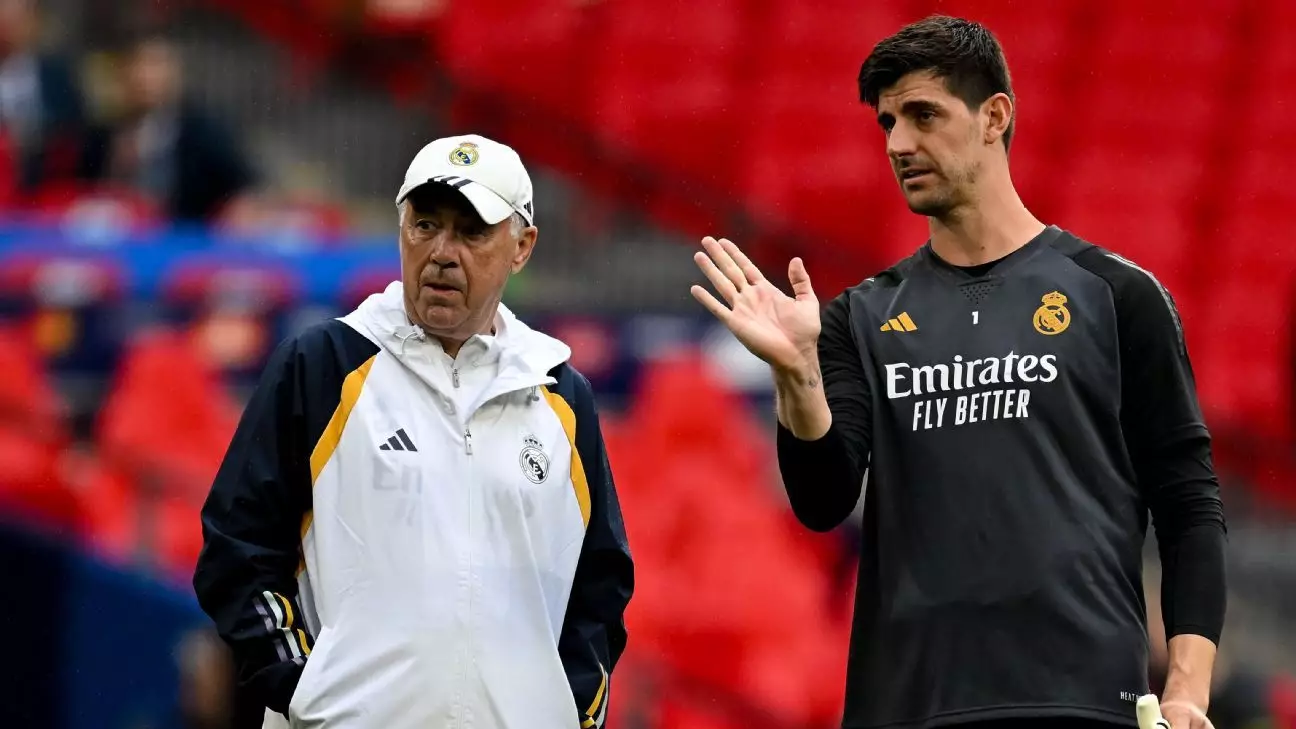Real Madrid’s formidable goalkeeper, Thibaut Courtois, has recently shed light on the tumultuous journey of the team under the leadership of head coach Carlo Ancelotti. This season, marked by unexpected highs and lows, has seen the team perched at second place in LaLiga, sharing points with fierce rivals Barcelona. However, the pressure has been palpable, especially given the absence of victories in their last three league outings and staggering defeats against Barcelona—with a 4-0 loss in LaLiga and a 5-2 drubbing in the Spanish Supercopa—as well as setbacks in European competitions against Lille, AC Milan, and Liverpool. Such a rollercoaster has inevitably led to moments of tension in the locker room.
In a candid discussion on the “Rio Ferdinand Presents” podcast, Courtois expressed his observations regarding differing coaching styles. He compared Ancelotti’s relatively calm demeanor to that of past coaches like Antonio Conte, known for his fiery outbursts. While acknowledging that emotions are an integral part of football management, Courtois emphasized the importance of maintaining a balanced approach. He praised Ancelotti’s ability to remain composed, reserving his explosive reactions for critical moments, which can resonate more profoundly with the players when it matters most. This measured methodology, according to Courtois, fosters a more stable environment, offering players the space to thrive while ensuring accountability.
Another significant topic Courtois touched upon is the issue of racism within football, particularly the abuse directed at his teammate Vinícius Júnior. Highlighting the gravity of these incidents, Courtois argued for a policy of “zero tolerance” toward such behavior. He pointed out an incident at Mestalla that drew national attention, where the game was halted as Vinícius confronted spectators who had hurled racial slurs at him. Courtois criticized the response from governing bodies and clubs in these situations, suggesting that stricter repercussions—such as the closure of entire sections of stadiums—would be a substantial step towards combating racial abuse in football. He believes that a stronger collective reaction from players and officials alike could pave the way for significant change in the sport’s culture.
On a more personal note, Courtois reflected on his future with the Belgium national team. Despite a rift with former coach Domenico Tedesco and a subsequent pause in his international career since June 2023, he expressed hope for reconciliation. Courtois revealed his desire to don the national colors again and to eventually compete at the World Cup, emphasizing that he dreams of leaving the national team on a high note. As he navigates through club responsibilities and personal aspirations, Courtois remains a figure of resilience and determination, embodying the dual challenges of striving for team success while confronting larger societal issues within football.

